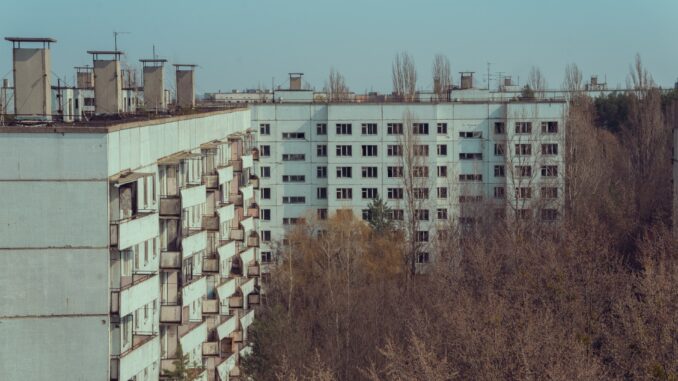
(“What is this? This is Aleksei.”)
The sun looks down its nose at Otchayaniye. The capital—Nichto—is almost devoid of life. Windowless monstrosities of buildings reach towards the sky. They have all been partially destroyed by fighting, and pieces of glass litter the street like snow. Many kilometers away, the short huts of the slums embrace one another as pieces of wood fall to the ground from their roofs. The first snow of winter has not come to comfort the city yet, and the sky is still clear. There are few clouds in the sky—they have gone somewhere else to play—and a young man named Aleksei Artemovich Kholodov is wearing an old winter coat with Otchayaniye’s faded colors on it. The coat was once white—a remnant of a war with an unknown nonentity—but now it has darkened to a tan color. The fur lining has been torn off to sell for bread, and some white fluff is still stuck to the remains of the collar.
The white-coated figure walks to the slums, for “if there is hope, it lies in the proles.”*
He walks past a few figures looking at him from the alleys—a tall one with a thin face, a blue-eyed one with a shifty look—but they will not matter. The buildings are not leaning over onto the street anymore, they are leaning backwards, as if to look up to the sky.
Vitaliy Konstantinovich Krolik—a once-plump soldier who worked for the Otchayaniyan government once upon a time—is standing where he was left, like an action figure left under a tree by a child.
Someone in the slums left their radio on when they left for a better place. Soft static rings out throughout the small street. Aleksei Artemovich knows perfectly well that the person who left the radio on will never come back, so he kicks in the door of the apartment and takes the radio. The apartment is empty. There are pieces of tin covering patches of the ceiling in the small room. There is a window that has pieces of cardboard covering it, and the pile of blankets in the corner that was once a bed is moldy. There is a balalaika case in the corner—the only thing that is still clean and loved. The white-coated figure decides not to open the balalaika case for fear of disturbing the dreams it contains. Nobody here in their right mind would own a balalaika—it would fall apart or get stolen. However, a cheap balalaika case is good for storing hopes in. It is big, and it has different compartments to hide the little things in.
“`Do you remember,` he said, `the thrush that sang to us, that first day, at the edge of the wood?` / `He wasn’t singing to us,` said Julia. `He was singing to please himself. Not even that. He was just singing.`”*
The white-coated figure once lived in a place like this, but he was with his family. But yet, he was alone with his dreams. Now he does not even have those.
Aleksei Artemovich leaves the little room with the radio in his pocket and goes on his way. After only a few kilometers, the slums disappear and the endless Otchayaniyan plain reaches out into nowhere. The grass is short and almost blue, and the puddles from the rain spot the land like stars interrupted by streetlights. The sky and the mountains in the distance are holding hands, and even the craters from the explosives have filled with water.
Aleksei Artemovich stands at the tip of these endless plains. He is not sure why he has come here. He does not know if Innokentiy Zvezdochkov is alive. He does not know if Boris Yevegenievich is alive. But yet, all is right with the world for Aleksei Artemovich, just for a few minutes.
What about Zvezdochkov? He has gone too far. Perhaps he shall live in the ever-spreading Otchayanian plains forever, forgotten. He has overstepped his boundaries, and it is a sin to take away his gift of intellect.
*George Orwell, 1984
Photo by Kato Blackmore 🇺🇦 on Unsplash
